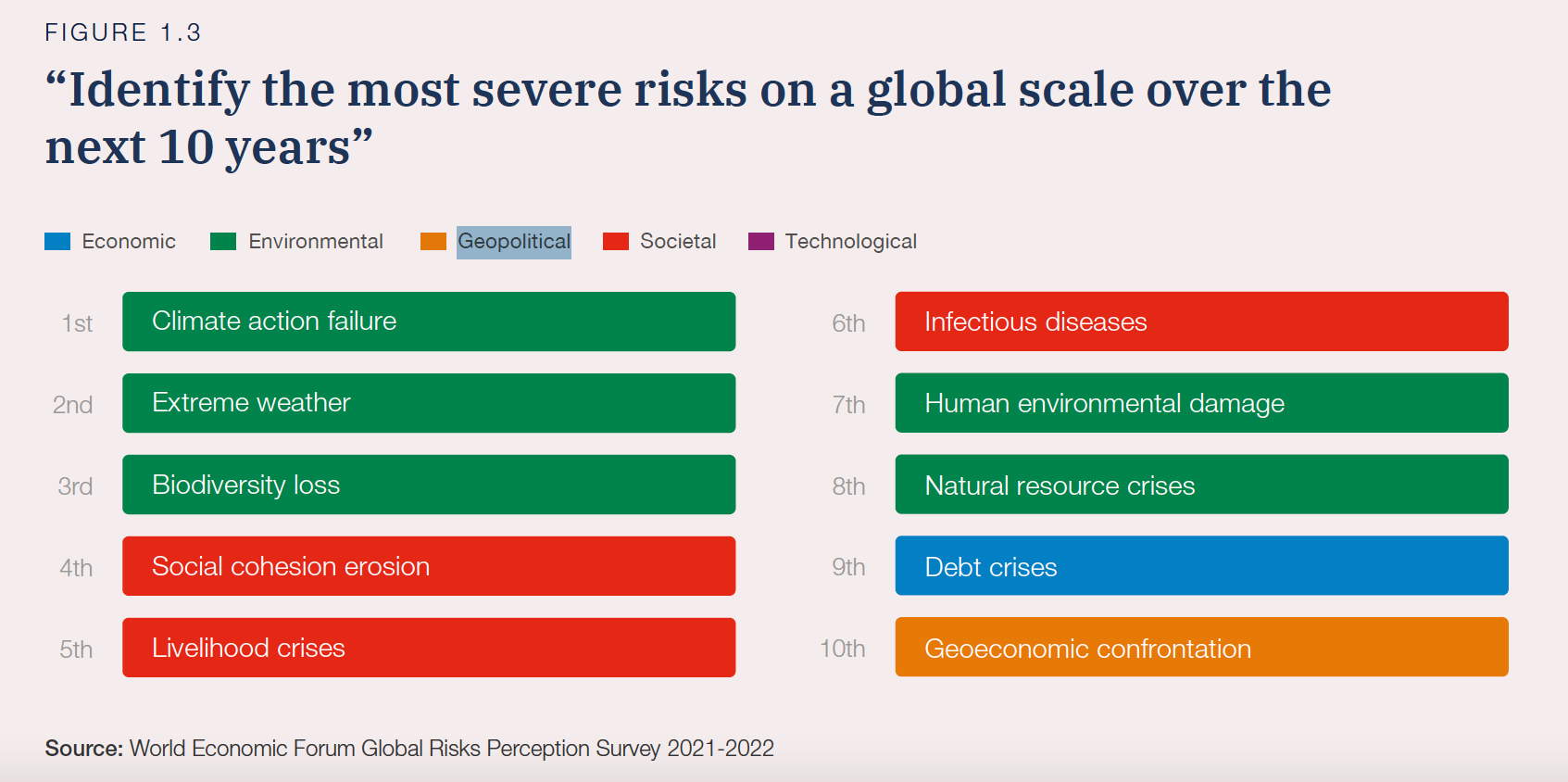By Asanga Abeyagoonasekera
“Risk reports show the cost of inaction far outweighing the cost of action” Borge Brende, President of the World Economic Forum.
The 17th edition of the Global Risk Report published by the World Economic Forum was published on 11th January 2022 at a time of significant global geopolitical tension. Global Risks Perceptions Survey (GRPS) conducted, ‘believe the world will follow a fractured trajectory in the medium term with a higher percentage of 41.8% observed the global outlook for the next three years will be ‘consistently volatile with multiple surprises’, and 61.2% feel concerned. Global Risk Report 2020 is a valuable guide to comprehending the risk factors and designing strategies to formulate solutions for multiple governments and other stakeholders. Pandemic has pushed many nations out of multilateral agenda into inward ultranationalist postures triggering geopolitical tension in different geographies. Geopolitical and geoeconomics tension among big powers will create a challenging environment to tackle shared global challenges such as in climate, health, economic, social, and other areas highlighted in the publication.
From Russia’s periphery in Ukraine and Kazakhstan to India and China’s periphery to the Indo-Pacific, geopolitical undercurrents have raised tension to a significant high point which could impact the entire globe. The report highlights the word ‘geopolitical and geopolitical tension’ in more than sixty places, highlighting the overall impact on the top 10 most severe risk factors in the next ten years, including natural resources, climate, social, geoeconomics, and debt crisis raising concerns in multiple geographies. The peripheral diplomacy carried out by big powers to stabilise their own regions has shifted from a passive posture into aggression, a visible factor in Russia, China, and India’s immediate geographical periphery and the US in Indo-Pacific theatre.
While the ‘key global and regional powers are testing boundaries of international law and cooperation by conducting military exercises around tense areas, such as the Russia-Ukraine border and the Taiwan Strait’ and also apart from land, sea, air, the traditional domains of geopolitics cyber, and space is given attention in the report. Risk in Space and ‘“Competition is intensifying in newer dimensions and geographies, as evident in the militarisation and weaponisation of space and in developments in cyberspace, where already sharp
tensions between governments impacted by cybercrime and governments complicit in their commission will continue to rise” is a critical assessment that requires investment and commitment from individual nations to strategise a holistic approach to minimise the tension. The same evaluation is seen by Dr. Rajeswari Pillai Rajagopalan, explaining ‘ The absence of earnest multilateral discussions could send more states down the path of space weaponisation, making access to space tricky.’ and major space powers need to recognize the urgent need to start multilateral negotiations.
The risk report highlights that geopolitical competition increases in exercising “soft power”. Such as Chinese vaccine diplomacy and its external financing strategy will ‘continue to expand
its influence throughout the developing world’. The developing nations will seek China’s assistance in the post-pandemic, especially in the financial sector. The recent request on ‘debt restructuring’ made by Sri Lanka during Chinese Foreign Minister Wang Yi’s visit to the island nation is a clear example of seeking Chinese assistance to address the present economic crisis in Sri Lanka. The global risk report highlights that many other developing countries will seek Chinese help. China will comfortably expand its influence in these nations using its Belt and Road Initiative.
Protectionist measures due to US-China geo-economics tension will be a significant risk factor, as highlighted in “geoeconomics confrontations” as a critical medium- and long-term threat. The Geopolitical and geoeconomics tensions will make it more challenging to tackle shared global challenges highlighted in the report. The debt risk will increase in many developing nations during a pandemic and post-pandemic environment. The report highlights ‘Brazil, Indonesia, Mexico, and Turkey, are among the top buyers of Chinese COVID-19 vaccines,31 and net debt payments to China rose by 62% in 2020’. With the increasing debt risk in many nations, geopolitical competition will further exacerbate among US and China. The South Asian regional power, India, will be concerned about its immediate geographical periphery where most nations could move closer to the Chinese sphere, threatening stability and India’s security. US exit from Afghanistan has increased risk in South Asia’s regional security, and US focus in Indo-Pacific will shift geopolitical fissures to a marine theatre. Multiple security alliances such as Australia-UK-US(AUKUS) will heighten the geopolitical competition in Indo-pacific with nuclear submarine capability exported to Australia in the years to come. Chinese diplomat Qi Zhenhong observed, ‘establishment of AUKUS is like holding up a “Sword of Damocles” on the heads of countries in the Pacific-Indian Ocean regional countries’ which will propagate an arms race and create regional instability further. The competition could extend to ‘other states, such as Russia and Turkey, are also showing greater capability and willingness to project power abroad’, which are critical areas for serious attention.
As explained by Klaus Schwab and Thierry Malleret in their new book The Great Narrative ‘there is as little chance of emerging power abandoning their value system to be more like the existing power would like them to be as there is of American leaders abandoning theirs to become more like the Chinese would like them to be and in the coming years a peaceful coexistence between the two rivals and the demonstrable ability to collaborate on some global issues like climate change would be the best possible outcome, but it is not given’. Individual nations must contribute and assist in easing the geopolitical tension to find a collaborative space to reduce the rising geopolitical competition.




0 Comments
LEAVE A COMMENT
Your email address will not be published